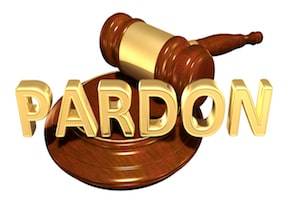Election of New Wisconsin Governor Re-Opens Possibility of Pardons
 By Ray Dall’Osto and Steve McGaver
By Ray Dall’Osto and Steve McGaver
Governor Scott Walker lost the November 6 gubernatorial election to Democrat Tony Evers. With the change in leadership in January 2019, hopefully there will come a change in priorities and policies in Wisconsin. One area that is expected to change is how pardons are handled. It is hoped that governor-elect Evers may reverse the current Walker policy of no pardons and no reviews and grant pardons to those he deems meritorious.
Scott Walker was elected in 2010, and he has held office from 2011 through January 2019. He is the first governor in the State of Wisconsin’s history since 1848 to categorically refuse to exercise the state constitutional prerogative to consider or grant pardons or commutation, no matter how worthy a pardon applicant might be of getting such.
The future for obtaining consideration for executive pardons and commutations looks significantly better since Walker was defeated in the November 2018 elections. However, the Republican legislative majority’s approval of lame duck legislation may make this more difficult. This power-grab legislation was signed into law by Walker on December 14, 2018, and it is intended to limit the powers of the newly-elected Democratic Governor Tony Evers and Attorney General Josh Kaul.
Pardons for Wisconsin State Charges
In Wisconsin, a person who is convicted of a felony loses a number of rights, including:
- The right to vote
- The right to serve on a jury
- The right to own or possess a firearm
- The right to hold a public office
- The right to obtain or continue holding certain professional licenses
Pardons by the governor are available for state crimes. A presidential pardon is required for a federal criminal conviction. Pardons by the governor are normally not granted until a substantial period of time has elapsed since a defendant has completed his/her sentence, or for exceptional reasons. The same consideration holds true for presidential pardons of federal convictions. Commutations of sentence can be granted while the defendant is still serving his/her sentence. Pardons and commutations can be either full or partial, and are totally discretionary.
Until Scott Walker, Wisconsin governors appointed a Pardon Advisory Board, which reviews pardon applications and makes recommendations to the Governor. Hopefully, newly-elected Governor Tony Evers will once again return to and follow Wisconsin’s long history of having a Pardon Advisory Board and considering and granting pardon and commutation applications.
Contact a Milwaukee, WI Criminal Pardon Attorney for More Information
The attorneys at Gimbel, Reilly, Guerin & Brown, LLP who are active in State Bar and legislative matters are keeping close tabs on the rapid new developments in this fluid situation, and can advise and best help you understand your options and work with you to anticipate the legal requirements and timing for applying for a pardon, commutation or expungement in the future.
Obtaining a pardon or commutation can make a huge difference in your life, allowing you to move on from the mistakes of your past. Given the shifting political landscape, when and how to apply, and developing the background information necessary for a successful application can complex. At Gimbel, Reilly, Guerin & Brown, LLP, our experienced Milwaukee criminal defense attorneys can advise you of what is really happening in this area of the law, and counsel and represent your interests throughout the advance preparation and pardon application process, helping you work to achieve the fresh start you deserve. Contact a Milwaukee criminal defense lawyer at 414-271-1440 to learn more about how we can help.
Sources:
https://www.twincities.com/2013/03/23/wisconsins-scott-walker-has-yet-to-act-on-1400-pardon-applications/
https://www.pardon411.com/wiki/Wisconsin_Pardon_Information







